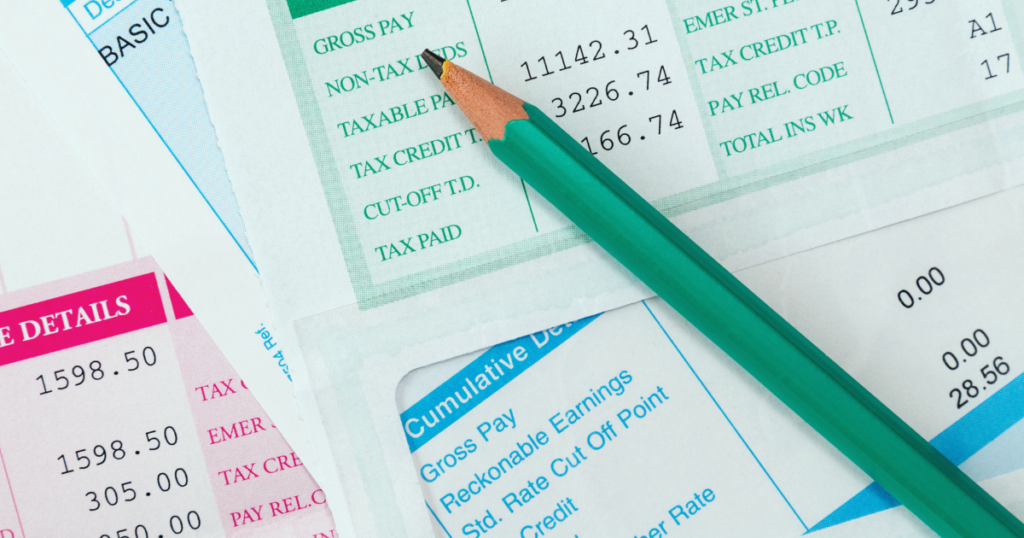If your business idea and structure involve employing workers in Australia, you’ll need to comply with various payroll regulations.
It’s important for all businesses with employees to comply with Australian payroll regulations to avoid penalties for non-compliance. Failure to comply with payroll laws could lead to serious consequences including interest charges, fines, loss of government funding and even criminal charges.
The main areas of payroll compliance for any business that has employees are minimum pay rates, paying employee superannuation, Single Touch Payroll (STP) and payroll tax reporting.
This article will help you understand how to know if your payroll is compliant and how the right tools can streamline this process for you.
Understanding payroll compliance
Payroll compliance means ensuring that your business meets all the legal requirements for paying your employees. In Australia, this includes:
- Correctly calculating wages and superannuation
- Providing accurate payslips
- Withholding the right amount of tax
- Reporting to the Australian Taxation Office (ATO)
- Complying with Fair Work Australia standards
How to ensure your payroll is compliant
Navigating payroll rules and regulations can be overwhelming, but it’s crucial to get it right to avoid fines and keep your employees happy. Follow the steps below to make sure your business is operating at the right standard.
1. Stay updated with legislation
The first step to ensuring payroll compliance is staying updated with the latest legislation. Australian payroll laws can change frequently, so it’s essential to keep up with any updates from the ATO or Fair Work Australia. Subscribing to newsletters and attending relevant seminars can help you stay informed.
2. Correctly calculate wages and superannuation
You must pay your employees the correct wages, including any overtime, bonuses, or allowances. Additionally, you need to ensure that superannuation contributions are calculated correctly. This includes paying your employees’ super funds the superannuation guarantee (SG) rate of 11.5% (as of July 2024).
Find out more about paying wages: fairwork.gov.au
3. Provide accurate payslips
Every time you pay your employees, you need to provide them with a payslip that meets Fair Work Australia requirements. It’s recommended to use a payslip template that must include:
- The employee’s name
- Your business name and ABN
- The pay period and date of payment
- Gross and net pay
- Deductions and superannuation contributions
Learn about payslip compliance: fairwork.gov.au
4. Withhold the right amount of tax
As an employer, you need to withhold the correct amount of tax from your employee’s wages and remit it to the ATO. This includes:
- PAYG withholding tax
- Fringe benefits tax (if applicable)
- Reportable superannuation contributions
5. Report to the ATO
STP is mandatory for all employers in Australia. You need to report your payroll information to the ATO each time you pay your employees. This includes wages, PAYG withholding, and superannuation information.
6. Maintain records
You must keep accurate and up-to-date records of all payroll transactions for at least seven years. This includes:
Learn about record-keeping requirements: ato.gov.au

How ATO-approved payroll software can help with compliance
Managing payroll for a small business can be a time-consuming and complex task. Thankfully, there are a variety of payroll software options available to streamline the process and ensure you’re meeting all compliance requirements. Here’s how these small business payroll solutions can benefit you:
Automated calculations
Eliminate manual calculations and potential errors. Payroll-only software automates wage and superannuation calculations, ensuring accuracy and adherence to regulations.
Compliant payslips
Generate payslips that meet Fair Work Australia standards. This guarantees your employees receive a clear and easy-to-understand breakdown of their earnings and deductions.
Seamless STP reporting
Streamline the STP reporting process. Payroll software simplifies submitting your payroll information to the ATO, ensuring you fulfill your reporting obligations efficiently.
Mobile accessibility
Manage payroll on the go with mobile app access. This allows you to stay connected and make necessary adjustments or approvals from anywhere, anytime.
Affordable for small businesses
Enjoy the benefits of payroll software without breaking the bank. Many platforms offer affordable solutions specifically designed for small businesses, making payroll management accessible for all sizes of operations.
Easy setup
Get started quickly and easily. The intuitive interface of most payroll software makes it a breeze to set up and start managing your payroll efficiently and accurately.
Critical takeaways on payroll compliance
- Stay updated with the latest payroll legislation.
- Ensure accurate wage and superannuation calculations.
- Provide compliant payslips.
- Withhold the correct amount of tax.
- Report payroll information to the ATO via STP.
- Maintain accurate payroll records.
Simplify your payroll with Payroller
Payroller takes the stress out of payroll management, helping you stay compliant and saving you valuable time. With its easy setup, automated calculations, and mobile accessibility, managing your payroll has never been simpler.
Frequently asked questions about payroll compliance
How do I pay employees fairly and correctly?
The Fair Work Act 2009 sets out minimum pay requirements for Australian employers. Minimum wage rates in Australia depend on an employee’s age, experience and industry. There are two general categories for an employee’s minimum pay:
1. Specific award rates apply to employees who are covered by an industry-specific ‘award’. These should be considered under an employee’s remuneration package. An award is a legal document containing minimum rates of pay and employment conditions for specific skill levels and industries. Examples of common awards include:
- The General Retail Industry Award for retail employees
- The Hospitality Industry (General) Award for hospitality employees
- The Building and Construction General On-site Award for construction.
2. All employees in Australia who are not covered by a specific award, are entitled at least the national minimum wage which is reviewed at least annually.
How do pay employees’ superannuation?
Employers need to make superannuation contributions to an employees’ nominated super account if you pay a worker wages or salaries. You’re an employer if you pay casual, part-time or full-time workers. You may also have to pay the super guarantee to contractors. You can find out more about superannuation guarantee eligibility from the official Australian Tax Office (ATO) website.
Who is required to comply with payroll tax laws?
Some employers in Australia need to comply with individual state and territory payroll tax laws. Whether you’d need to register for and accurately pay payroll tax depends on specific payroll tax thresholds. Payroll tax calculations depend on the total amount of wages and salaries paid by an employer. Therefore, payroll tax compliance typically applies to larger employers versus small businesses.
What are my obligations if my business doesn’t have employees?
Note that even if your business doesn’t have any employees and therefore, no payroll obligations, you’d need to report certain information regularly to the ATO. This information may include business income, business expenses and GST (goods and services tax).
